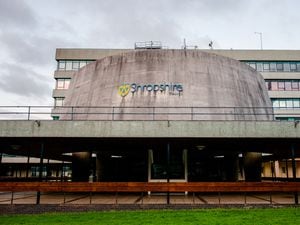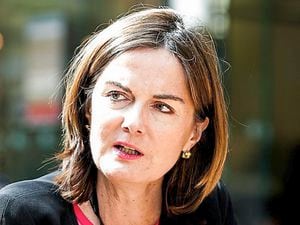Ministers appeal for fuel calm as Johnson draws back from deploying troops
Environment Secretary George Eustice said there is no reason for petrol shortages if motorists stop ‘panic buying’.
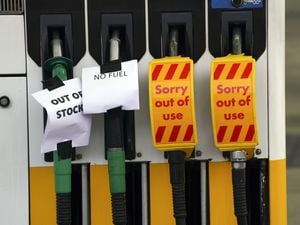
Ministers have issued a fresh appeal to motorists to stop “panic buying” as Boris Johnson drew back from plans to deploy troops to ensure fuel supplies reach forecourts.
Downing Street said the Government was monitoring the situation on a daily basis but there were currently no plans to use the military to drive fuel tankers.
Ministers are hoping the pressure will ease as motorists move back to their routine buying patterns, following the surge in demand last week which led to filling stations across the country running dry.
However there was little sign of the queues easing, while doctors groups warned some medical staff were struggling to get to work because they could not fill up their cars.
Mr Johnson was reported to be considering activating Operation Escalin to use troops to drive tankers to petrol stations, amid a continuing shortage of HGV drivers.
However the Prime Minister’s official spokesman said there were currently no plans to use the military, beyond assisting with the drive to reduce the backlog of HGV tests.
“Obviously we will continue to look at all options and make sure preparatory steps are taken across government should further measures be needed,” the spokesman said.
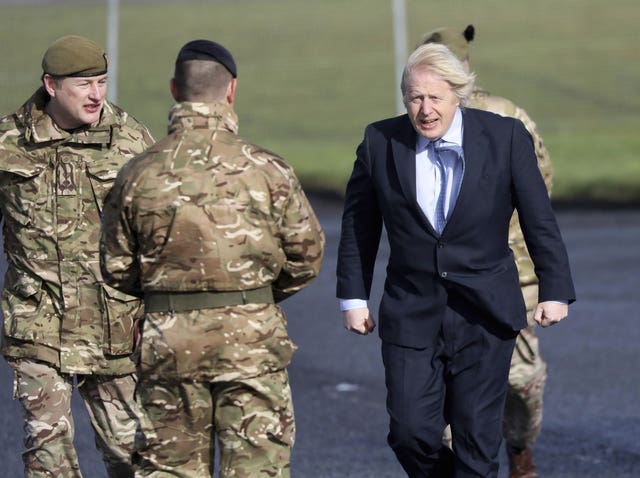
“We are not currently bringing in the military to drive tankers.”
Cabinet Office Minister Stephen Barclay was chairing cross-government talks on Monday to assess the latest situation.
Meanwhile Environment Secretary George Eustice insisted there was no need for shortages at the pumps and blamed motorists for filling up when they did not need to.
“There isn’t a shortage (of fuel). The cause of these current problems is that panic-buying episode and the most important thing is for people to start buying petrol as they normally would.
“There does come a point – as we saw during a previous episode of panic buying during the pandemic on food – where things settle down and people get used to it, and return to life as normal again.
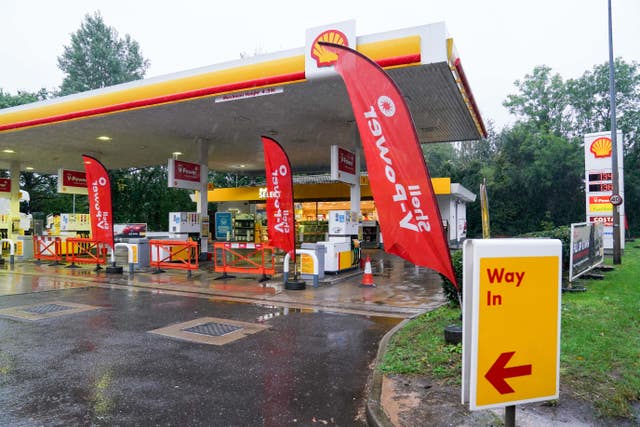
“The sooner people do that the better. The only reason we don’t have petrol on the forecourts is that people are buying petrol when they don’t need to.”
Amid concerns about the impact on the NHS, the British Medical Association (BMA) called for healthcare workers to be given priority to access fuel, to ensure essential services were maintained.
Dr Chaand Nagpaul, chair of council at the BMA, said: “Everyone will have their own reasons for needing to fill up, but as pumps run dry there is a real risk that NHS staff won’t be able to do their jobs and provide vital services and care to people who urgently need it.
“Healthcare and essential workers must therefore be given priority access to fuel so they can continue their crucial work and guarantee care to patients.”
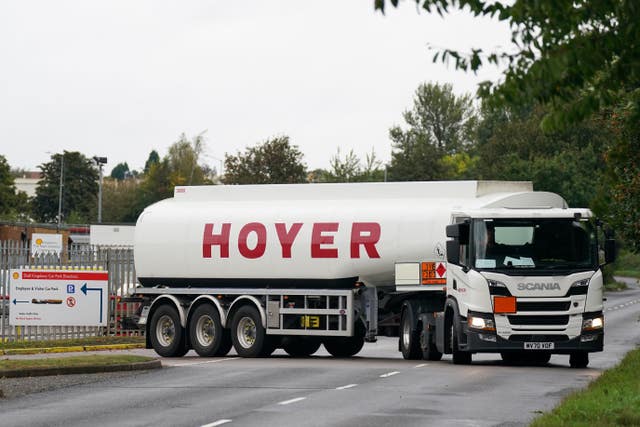
The Petrol Retailers Association (PRA) blamed the dash to fill up on the leak last week of concerns by BP about some shortages of tanker drivers needed to deliver fuel supplies.
PRA chairman Brian Madderson said stations which had run dry were currently being re-stocked although the number of deliveries they were receiving were down on normal.
Ultimately he said that the solution lay in the hands of motorists.
“If they start buying in their normal quantities, £20 worth, 20 litres to fill up every week, we could see by the end of this week some return to normality – it won’t be perfect, but some return,” he told BBC Breakfast.
With long queues at filling stations continuing over the weekend, Business Secretary Kwasi Kwarteng said on Sunday he was temporarily suspending competition laws to allow the industry to share information so it can target areas where fuel supply is running low.
The move came after Mr Johnson said the Government was creating 5,000 three-month visas for foreign lorry drivers in an attempt to ease the pressure on hauliers which has been blamed for the problems.
For Labour, shadow chancellor Rachel Reeves said the haulage industry had been warning for months about the shortage of drivers, but ministers had simply ignored them.
She told ITV’s Good Morning Britain: “Since last year I have been meeting and talking with the Road Haulage Association and hauliers about some of the problems coming down the line.
“The Government ignored those problems, which is why we are now facing the situation where people go to the supermarkets and see shortages of goods on the shelves, and why they are queuing up at petrol stations and not being able to fill up their tank.
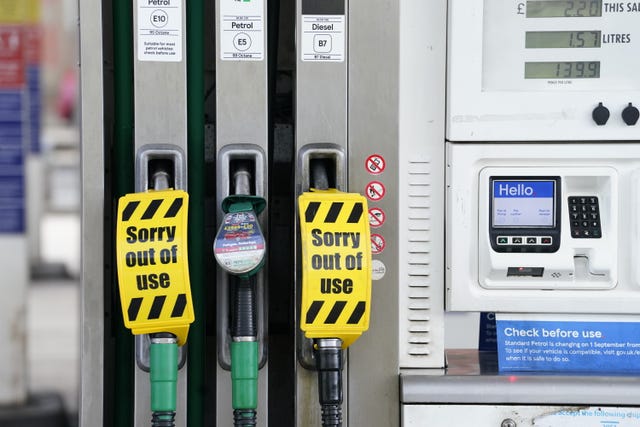
“That is not acceptable, this is an out-of-touch and complacent Government.”
Meanwhile, Edwin Atema from the Dutch FNV union, which represents drivers across the Europe, said the offer of temporary visas would not be enough to attract drivers back to the UK following Brexit.
“On the short-term I think that will be a dead end,” he told the BBC Radio 4’s Today programme.
“So more is needed, and I think the EU workers we speak to will not go to the UK for a short-term visa to help UK out of the shit they created themselves.”


